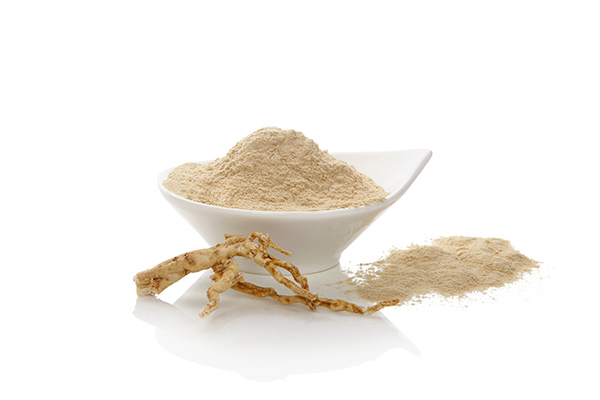-
Home > News & Events > Blog > Human Health

When it comes to vitamins, most people immediately think of vitamin A, the B-complex vitamins, vitamin C, vitamin D, and vitamin E. Different types of vitamins play different roles in the human body and are essential for cellular metabolism. Vitamins A, B, and C are closely related to skin health, vitamin D aids in calcium absorption, and vitamin E has anti-aging properties. However, many people are less familiar with vitamin K2, a less well-known vitamin that plays a crucial role in various aspects of health.
What is Vitamin K2?
Vitamin K2 is a collective term for a group of fat-soluble compounds with a menaquinone structure, primarily derived from bacteria. It is widely found in various animal livers, fermented dairy products, cheese, and is most abundant in natto. In the human body, menaquinones, especially long-chain menaquinones, mainly come from intestinal bacteria, such as Lactobacillus and Escherichia coli.
What Are the Functions of Vitamin K2?
Extensive clinical research and data have shown that vitamin K2 has significant effects on improving blood clotting function, promoting bone metabolism to ensure bone health, and preventing cardiovascular diseases. In recent years, researchers have discovered another association between vitamin K2 and heart health.
During exercise, bones release osteocalcin, which, through signaling, accelerates the uptake and breakdown of glucose and fatty acids to help muscles meet increased energy demands. Vitamin K2 promotes the binding of matrix Gla protein to osteocalcin, allowing skeletal muscles to better utilize energy during exercise, thereby enhancing efficiency. Studies have shown that exogenous osteocalcin can enhance the exercise capacity of young mice and restore the exercise capacity of 15-month-old mice to that of 3-month-old mice. This suggests that vitamin K2 is beneficial for improving exercise adaptability and may reverse age-related declines in exercise capacity.
Mitochondria are known as the energy factories of cells, and the adenosine triphosphate (ATP) they produce is the body's direct source of energy. Increased intake of vitamin K2 helps restore mitochondrial function, especially their ability to produce ATP. Skeletal muscles and cardiac muscles contain high concentrations of mitochondria. Some researchers speculate that supplementing vitamin K2 in the diet may enhance the function of muscles with high mitochondrial content (i.e., skeletal and cardiac muscles), thereby improving endurance.
According to publicly available data from "Alternative Therapies in Health and Medicine," a double-blind study involving 26 athletes found that supplementing 300 mg of vitamin K2 per day for four weeks, followed by 150 mg per day for another four weeks, increased maximum cardiac output by 12%. Cardiac output is the ability of the heart to pump blood throughout the body, typically measured in "liters per minute." An increase in cardiac output means a stronger heart or more favorable blood vessel flow. Achieving this change through regular training without vitamin K2 supplementation might take 6 to 9 months. Additionally, as the heart weakens with age, one of the key signs of aging is a continuous decrease in cardiac output, suggesting that vitamin K2 may have anti-aging effects.
This is the first time we've discovered the potential of vitamin K2 in athletes, and a 12% increase in maximum cardiac output is highly noteworthy. Optimizing maximum cardiac output means an increase in the maximum amount of blood and oxygen that exercising muscles can receive, effectively improving endurance. Furthermore, studies on elite runners and cyclists have confirmed a link between high cardiac output and high-level endurance performance. Coupled with the proven ability of vitamin K2 to reduce cardiovascular disease risk, this makes this remarkable nutrient something everyone would want!
What are the sources of Vitamin K2?
Vitamin K2 is predominantly found in fermented foods such as natto, cheese, egg yolks, butter, and chicken liver. However, these types of foods are generally lacking in the daily diets of Chinese people, leading to an insufficient intake of Vitamin K2 in the Chinese population's dietary structure. Moreover, modern individuals may opt for low-fat milk, lean meats, and other ingredients for weight control or other reasons. While these dietary habits indeed reduce calorie intake, they also result in missed opportunities to obtain Vitamin K. Therefore, while controlling fat intake is important, it's also crucial to maintain a balanced diet and avoid neglecting essential nutrients.
According to the Dietary Guidelines for Americans 2020-2025, the recommended daily intake of vitamin K for individuals aged 0-18 years is 30-75 μg, 90 μg for adult females, and 120 μg for adult males. For individuals with osteoporosis or suboptimal bone health, the supplementation of vitamin K2 should be increased accordingly. If it's not possible to obtain sufficient vitamin K2 through diet, considering vitamin K2 supplements might be a good option.
When choosing vitamin K2 supplements, products obtained through natural fermentation methods are healthier and safer. Clinical evidence has also shown their high efficiency in promoting calcium incorporation into bones, enhancing calcium supplementation effects. As more people see the "potential" in vitamin K2, it is expected to become a "dark horse" in the health food and functional food industry and eventually establish itself as a leader in the field of overall health.







